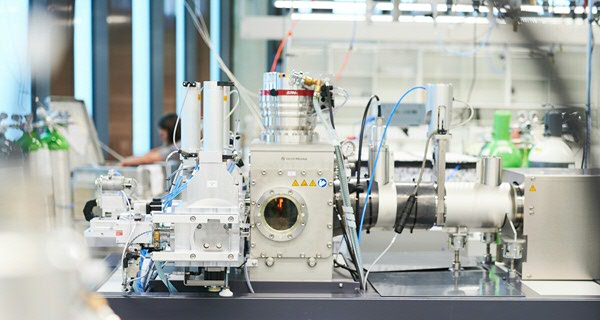Centre for Isotope Research – CIO
CIO (Centrum voor IsotopenOnderzoek in Dutch) is specialised in high-accuracy measurements of rare natural isotopes. The CIO laboratory has more than 75 years’ experience in the development and optimisation of isotope measurement techniques, and is globally renowned for the application of these methods to important research questions. Over the years, the CIO's expertise has been expanded to measurements on the concentration of greenhouse gases, aerosols and other trace constituents in the atmosphere. The CIO group consists of 3 senior scientists; 5 scientific engineers; 13 specialised technicians, laboratory and secretarial staff; and typically 15 PhD students and postdocs.
CIO's research is concentrated in four main fields, that are all interconnected
-
Greenhouse gases and hydrogen
-
Atmospheric aerosols
-
Radiocarbon
-
Light stable isotopes
Upon request, the CIO also offers analysis services for third parties. Many of these interactions comprise academic collaborations, across a wide variety of fields, and others are services for customers from public institutions and research organisations. Some of the fields we contribute to include radiocarbon dating, biomedical research, bio/fossil materials discrimination, and hydrological themes. For further information see our customers page.
Equipment and facilities
To support these various fields of research, CIO has a wide range of equipment at its disposal: isotope ratio mass spectrometers, optical concentration measurement systems, optical isotope systems, a variety of gas chromatographs, and more. Of these instruments, the Micadas accelerator mass spectrometer (AMS) for radiocarbon analysis takes pride of place.
The CIO operates the atmospheric monitoring station Lutjewad, on the Wadden Sea coast north of Groningen, where a wide range of continuous measurements of greenhouse gases and aerosols is obtained. The station, part of the European ICOS network, is centred around a 60m tall mast for air input, and a 10m high scaffolding for various instruments, such as a cloud radar.

